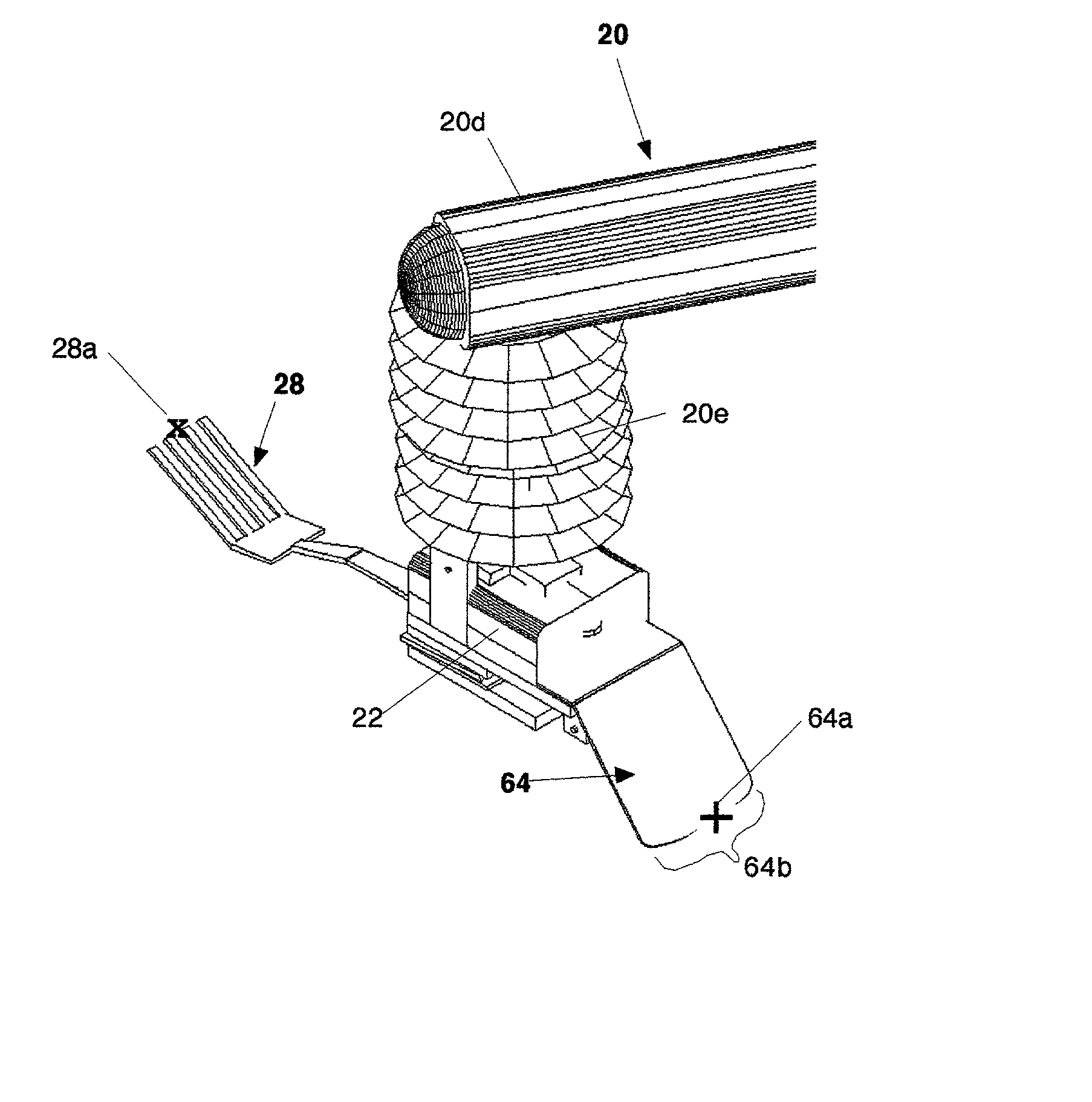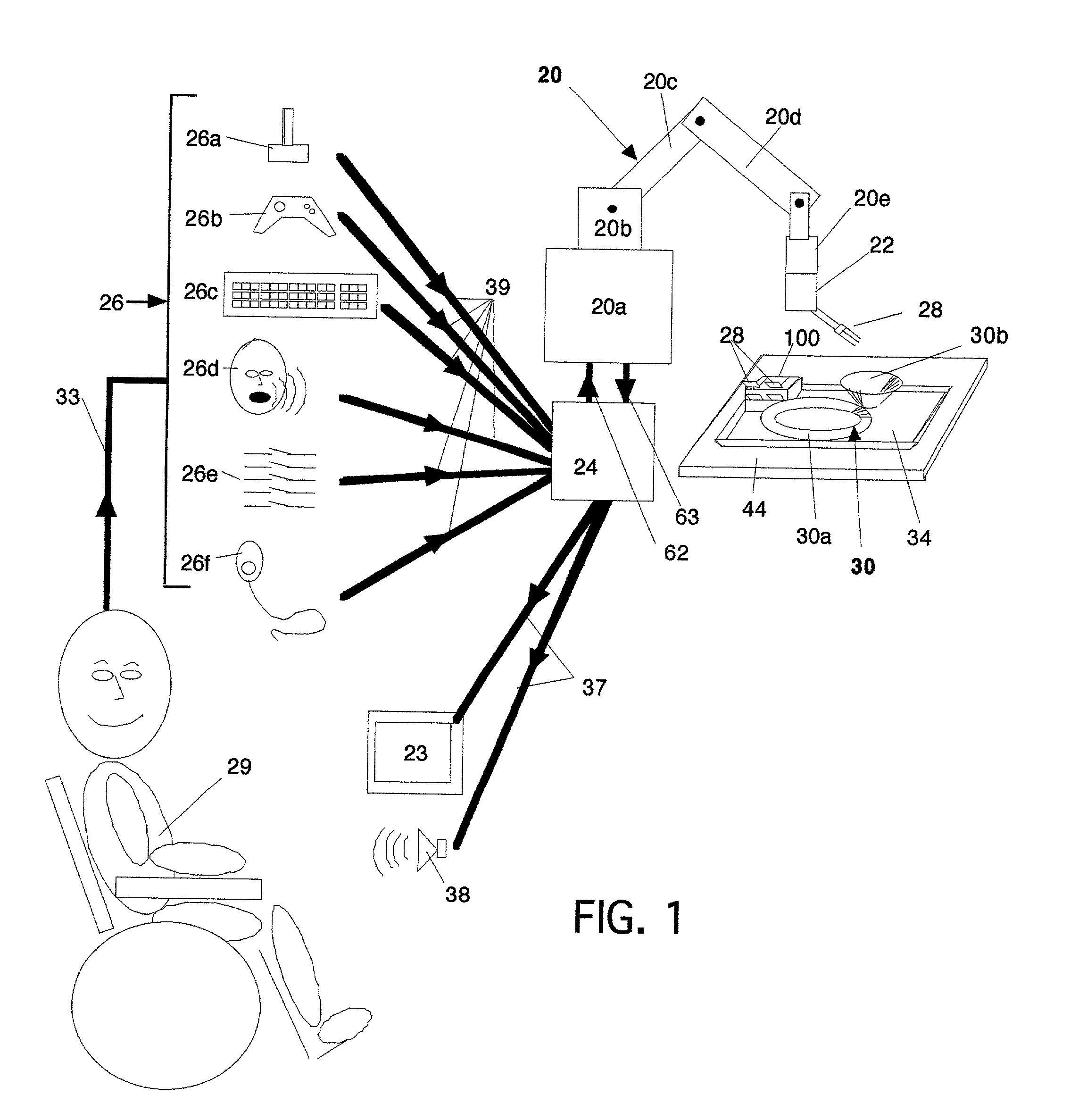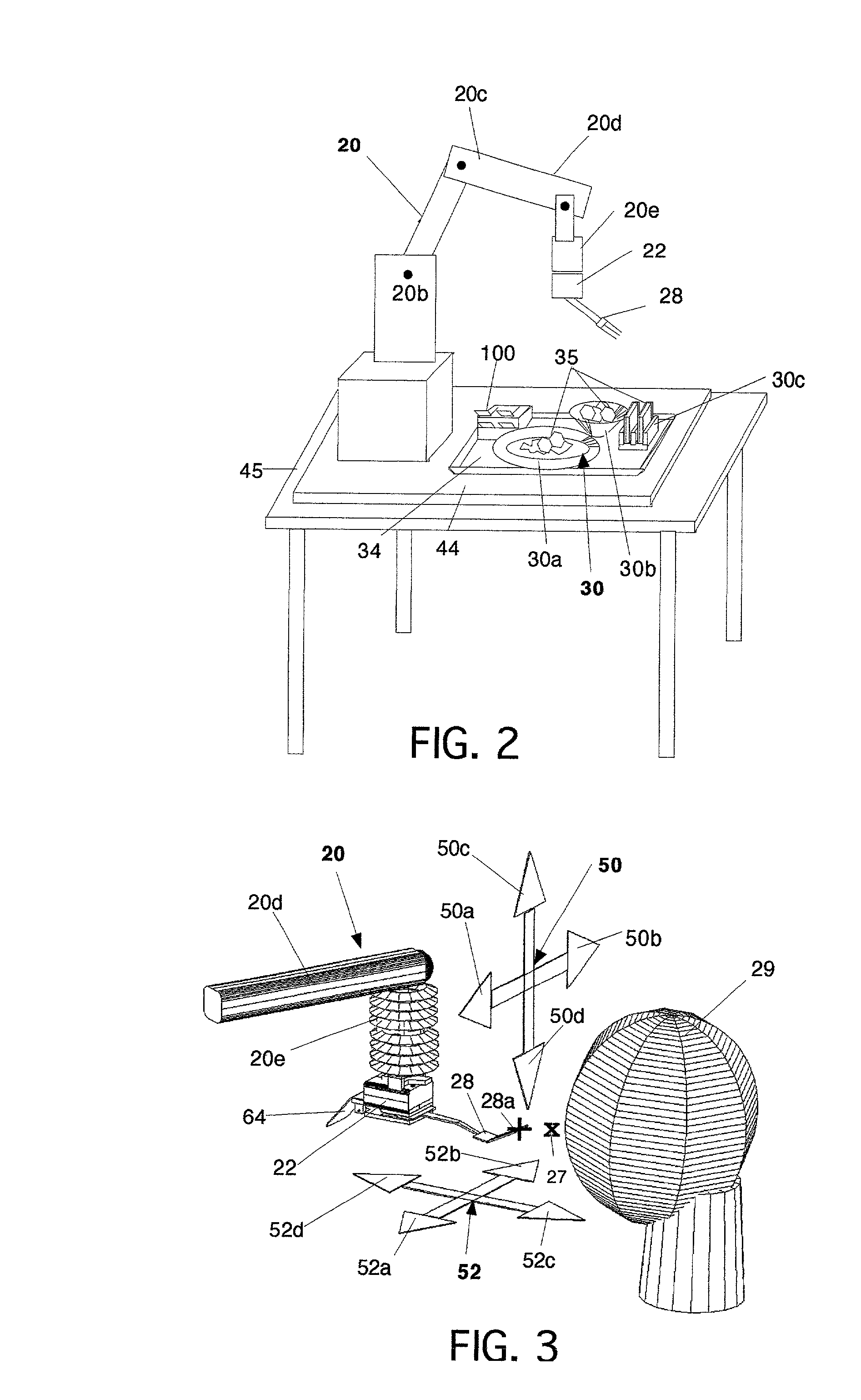Self-feeding apparatus with hover mode
a self-feeding and hovering technology, applied in the field of mechanical, automatic or robotic devices, can solve the problems of difficult apparatus to set up and maintain, limited use of the self-feeding apparatus to a small set, and insufficient dignified eating, so as to achieve the effect of flexible food selection and food cutting
- Summary
- Abstract
- Description
- Claims
- Application Information
AI Technical Summary
Benefits of technology
Problems solved by technology
Method used
Image
Examples
Embodiment Construction
[0048] The drawings show a robotic self-feeding device. It comprises a robot arm, a set of utensils, food holders, a control computer, control software, a display, which can be visual or auditory or tactile, and multiple control input signals from the operator.
[0049] FIG. 1 shows a schematic representation of my self-feeding apparatus. A robotic arm 20 comprises a base 20a, a shoulder Joint 20b, a bicep 20c, a forearm 20d, and a wrist 20e. On wrist 20e is mounted a gripper 22. Robot 20 and gripper 22 are operated by signals from a control apparatus or computer 24. A user 29, who may have severe paralysis, provides input signals 33 to one or more of a set of input devices and methods 26. Input devices and methods 26 comprise a joystick input 26a, a gamepad input 26b, a keyboard input 26c, a voice, or speech input 26d, a multi-switch input 26e, and a standard computer pointing device input including but not limited to mouse, trackball, and touchscreen 26f. Input signals 39 from one or...
PUM
 Login to View More
Login to View More Abstract
Description
Claims
Application Information
 Login to View More
Login to View More - R&D
- Intellectual Property
- Life Sciences
- Materials
- Tech Scout
- Unparalleled Data Quality
- Higher Quality Content
- 60% Fewer Hallucinations
Browse by: Latest US Patents, China's latest patents, Technical Efficacy Thesaurus, Application Domain, Technology Topic, Popular Technical Reports.
© 2025 PatSnap. All rights reserved.Legal|Privacy policy|Modern Slavery Act Transparency Statement|Sitemap|About US| Contact US: help@patsnap.com



